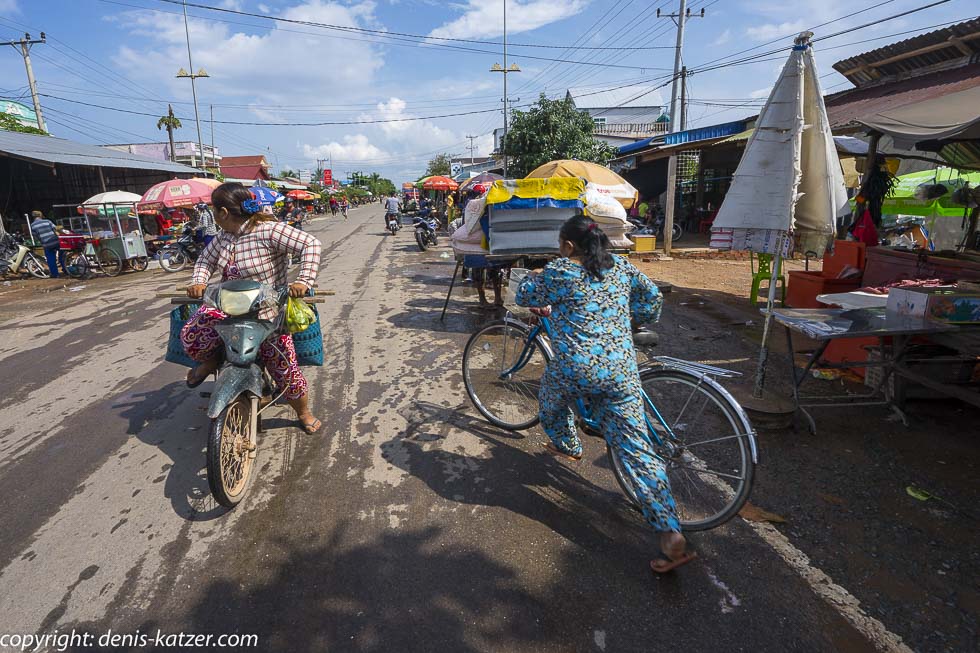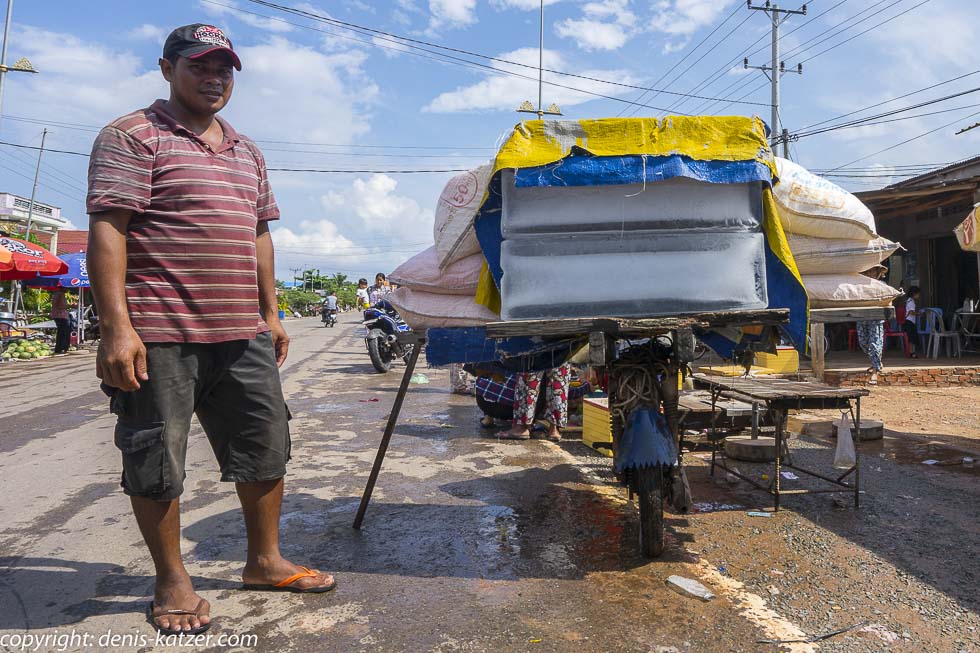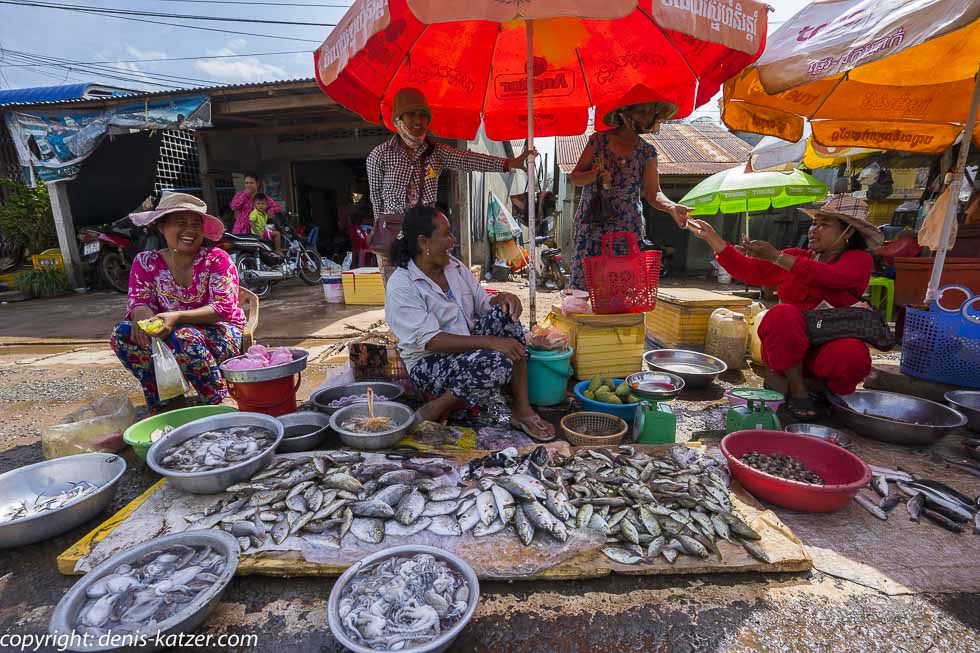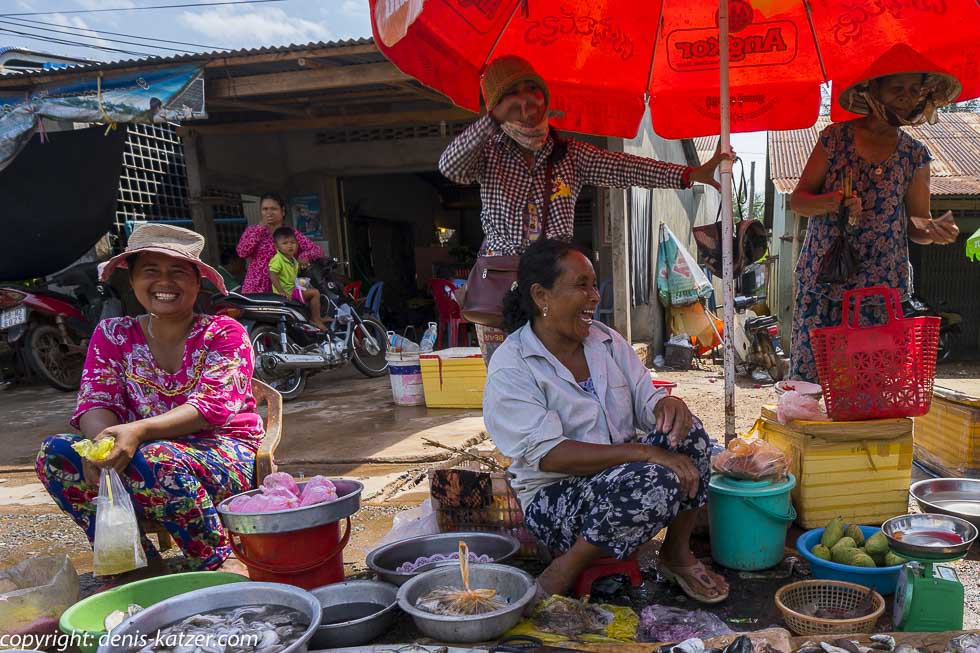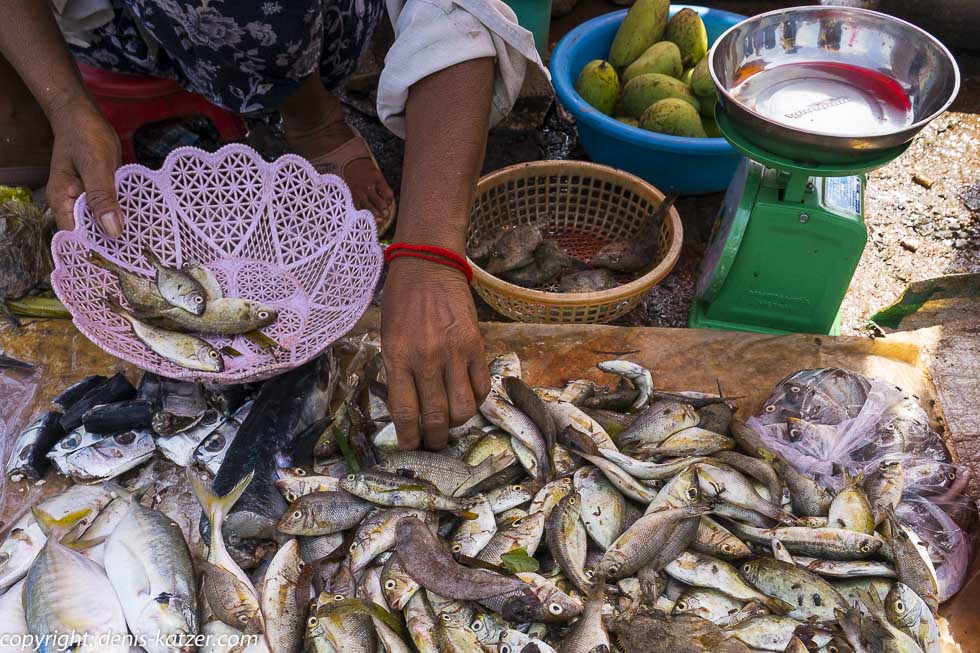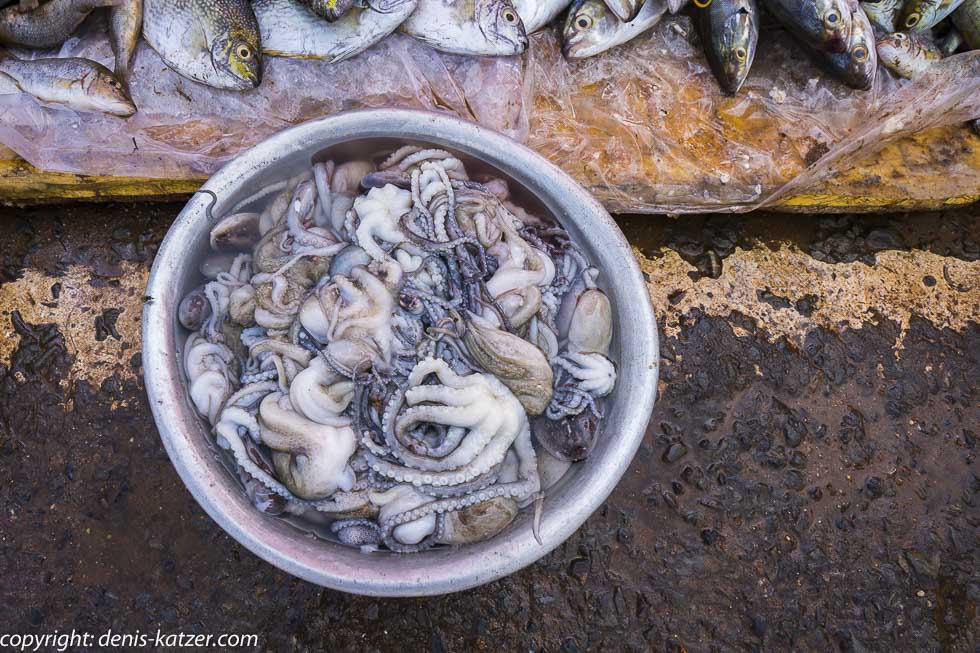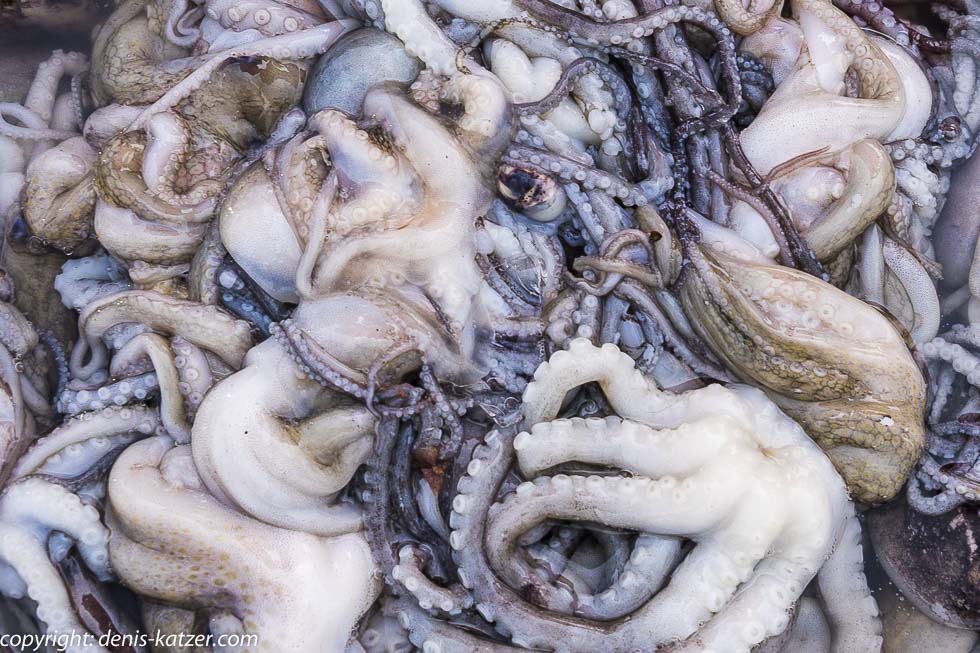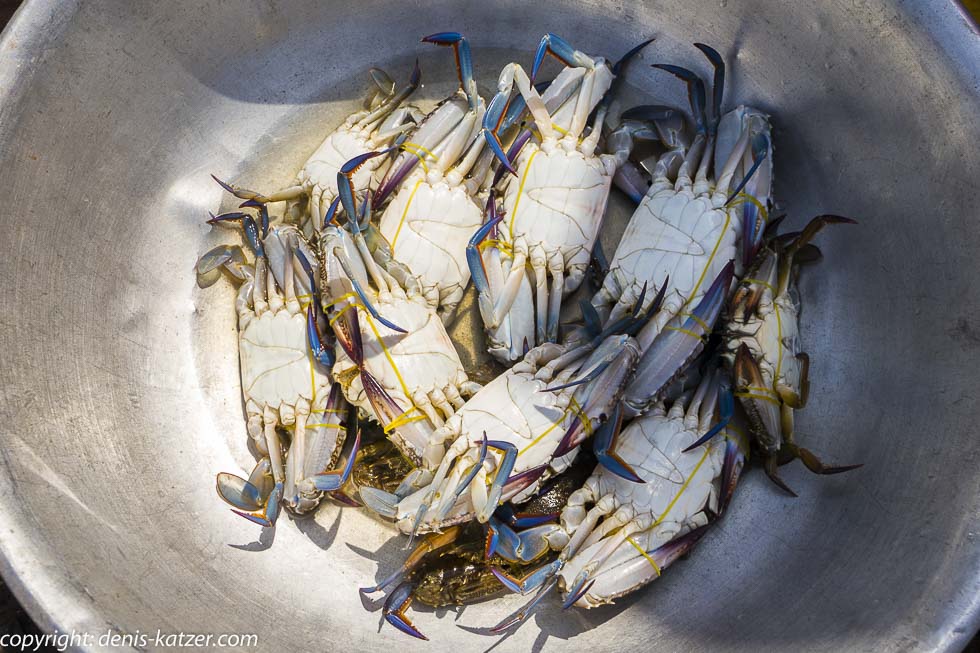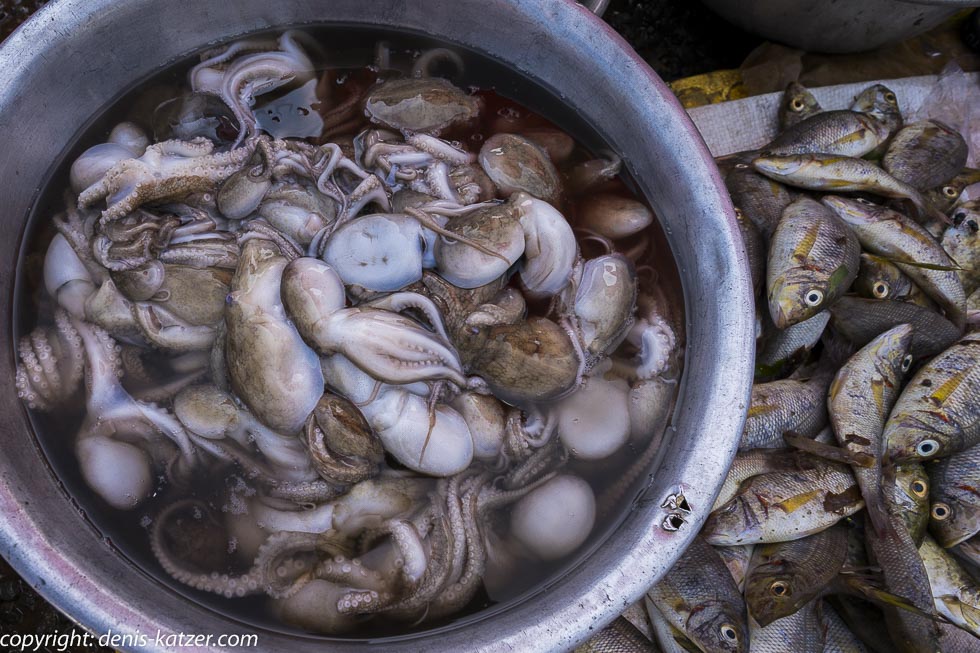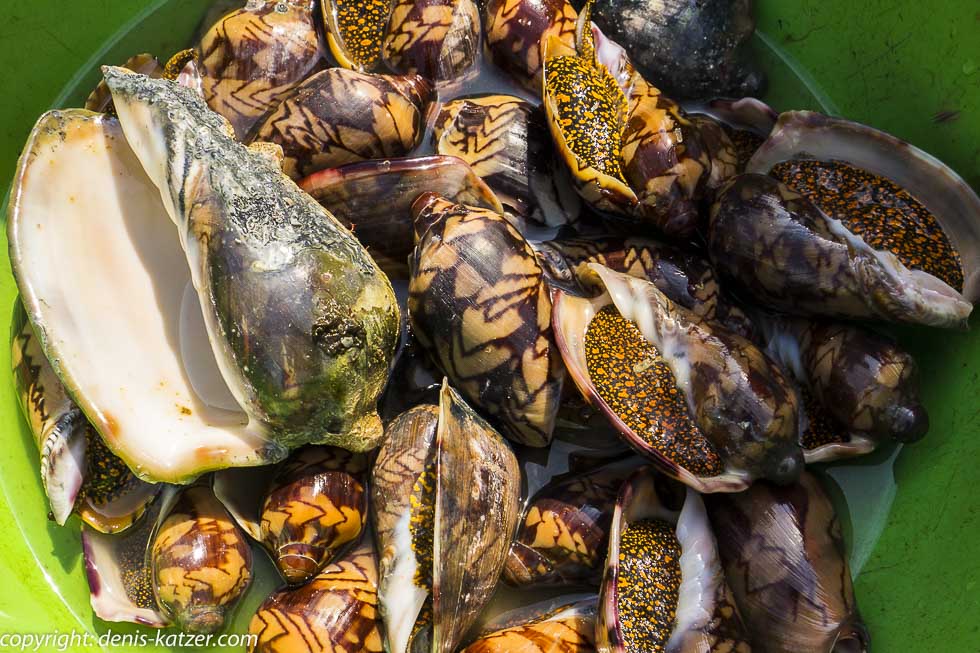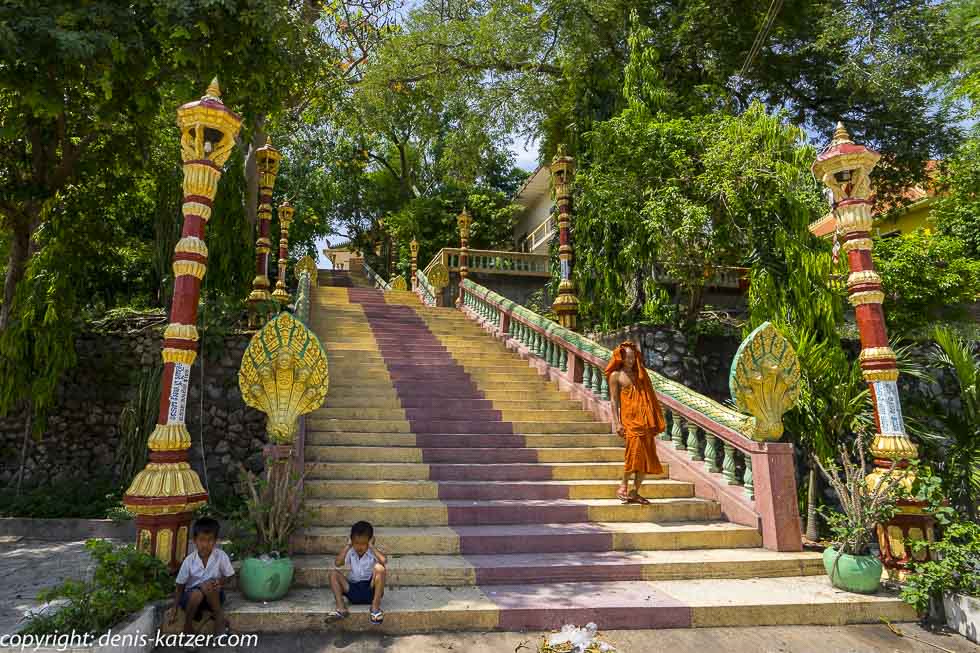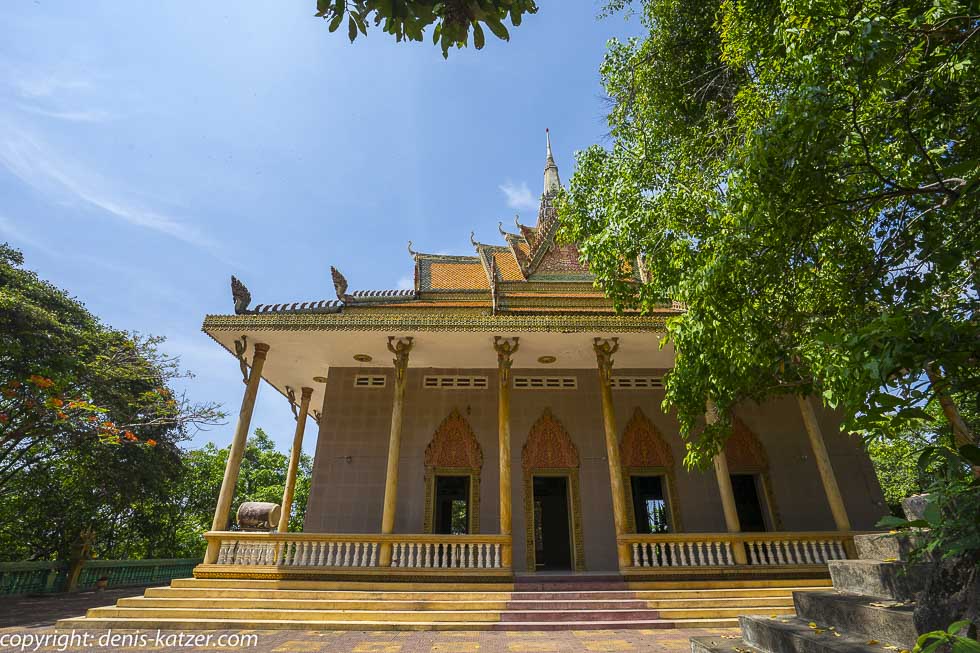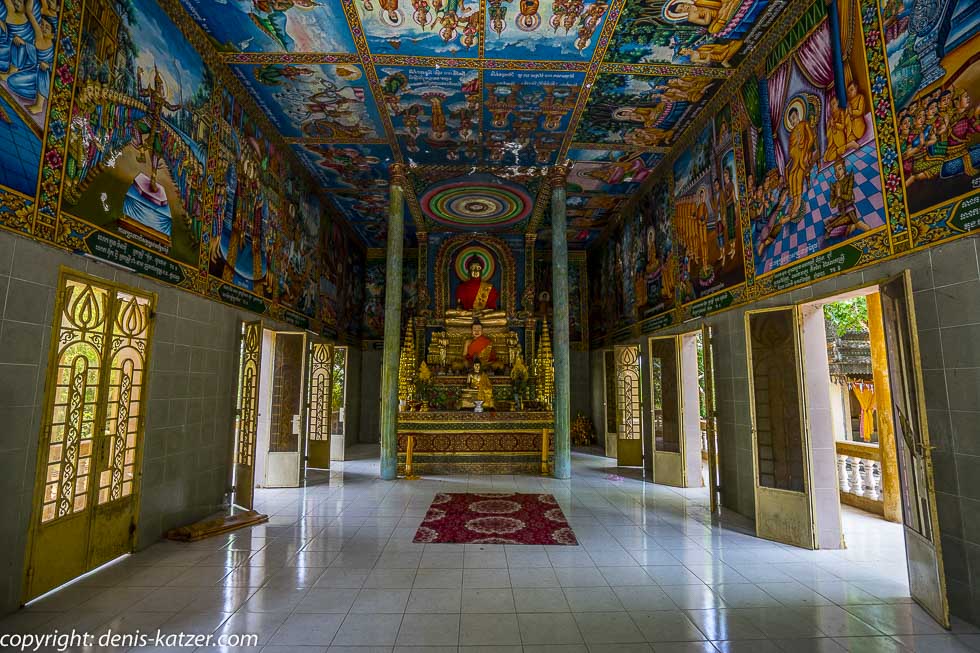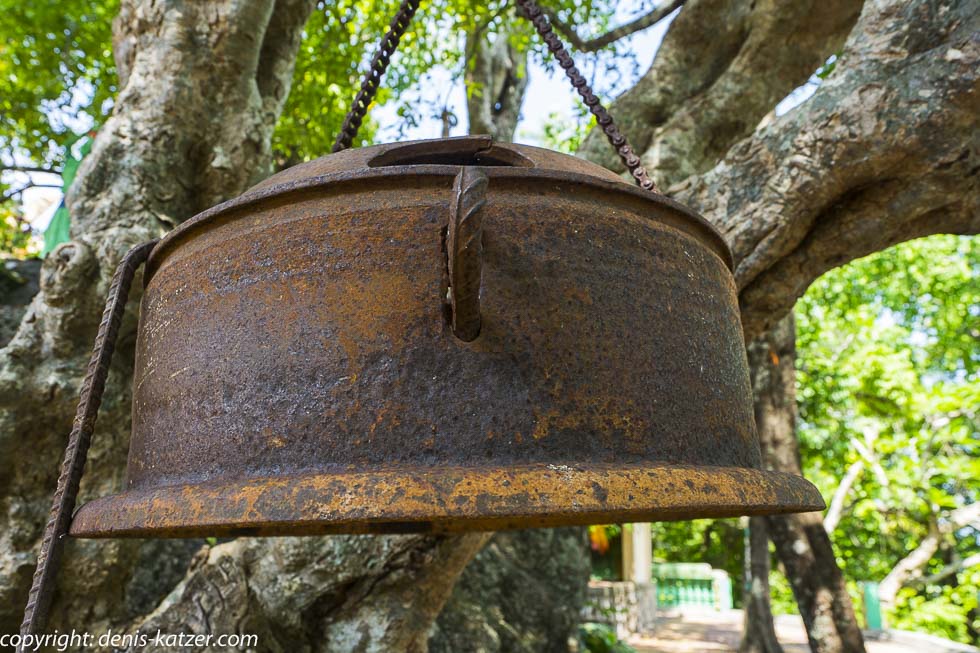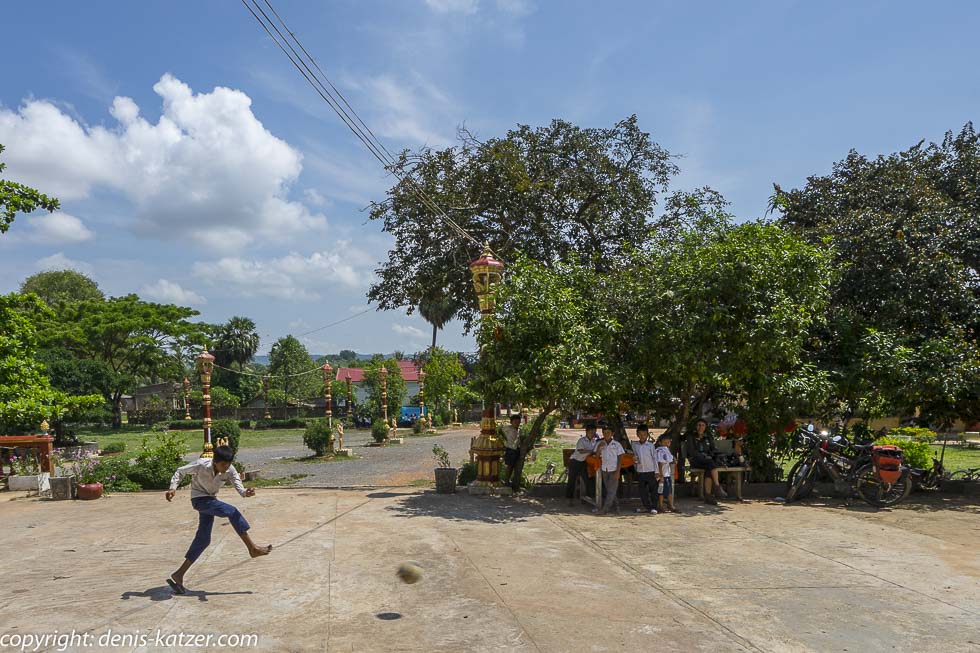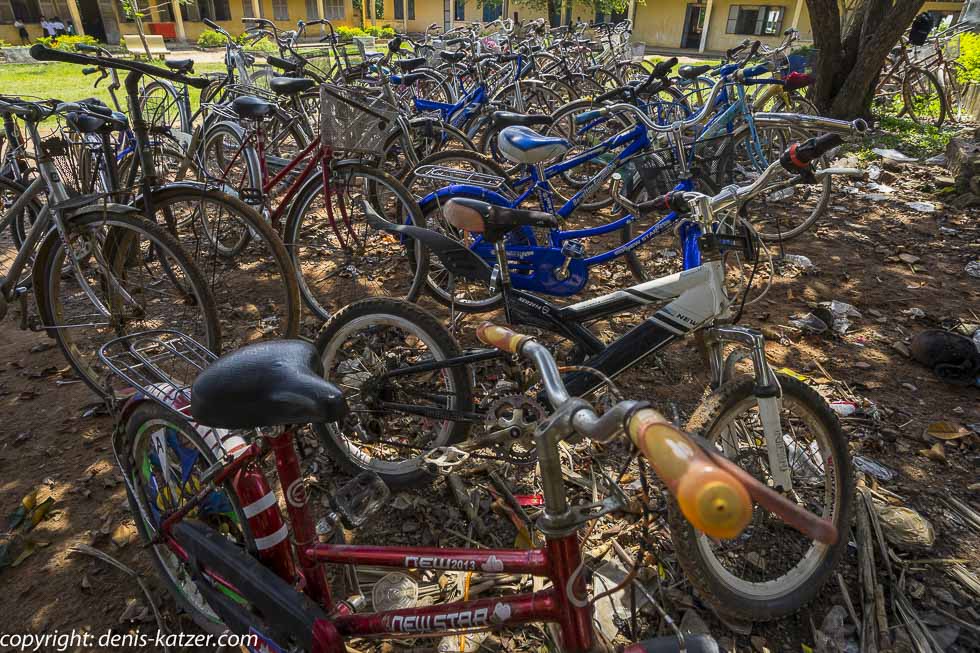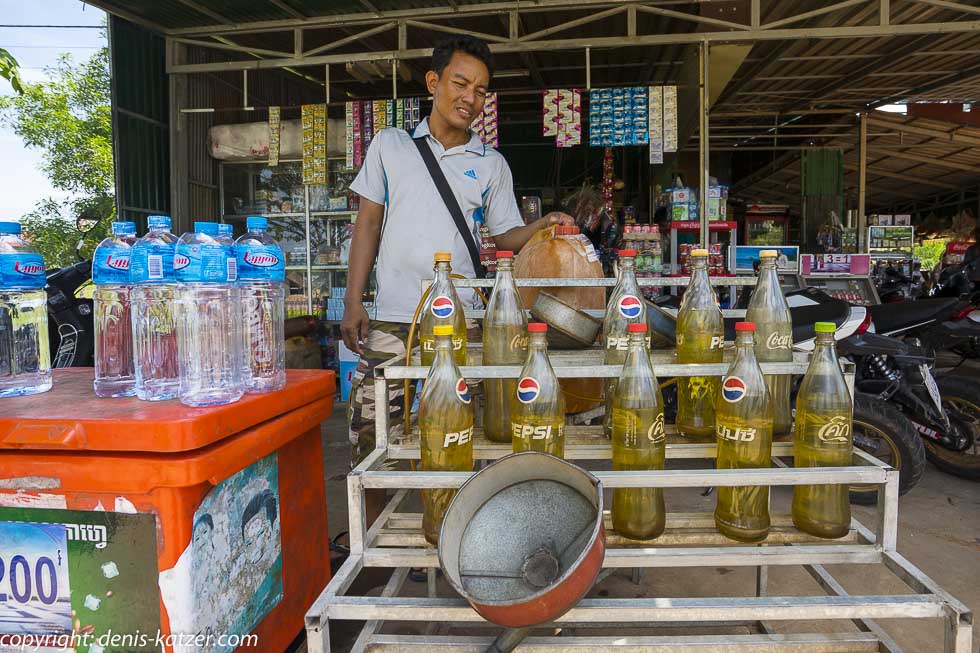
Corruption, a completely normal part of income?
N 10°25'41.3'' E 104°27'12.2''
Date:
02.05.2017
Day: 672
Country:
Cambodia
Province
Kêb
Location:
Kep
Latitude N:
10°25’41.3”
Longitude E:
104°27’12.2”
Daily kilometers:
67 km
Total kilometers:
23,717 km
Average speed:
25.4 km/h
Maximum speed:
28.1 km/h
Travel time:
2:38 hrs.
Soil condition:
Asphalt
Maximum height:
10 m
Total altitude meters:
71.018 m
Altitude meters for the day:
30 m
Sunrise:
05:44 pm
Sunset:
6:15 pm
Temperature day max:
37°C
Departure:
06:30 a.m.
Arrival time:
11:15 a.m.
(Photos of the diary entry can be found at the end of the text).
As we are going back to Vietnam today to re-enter the country for a new Cambodia visa, we leave our luggage and Ajaci at the accommodation. We’re in the saddle at 6:30 a.m. and are whizzing across the flat countryside at around 27 km/h, as light as a bird. Although we don’t have any luggage with us and the wonderful Bosch drive makes biking extremely easy, the rising glowing star gets to us again.
We reach the border shortly before 8:00 am. The Cambodians stamp the passports, then we cycle the few hundred meters over to Vietnam. While we are submitting our travel documents to apply for a two-week visa (free of charge for Germans since 2016), a heavy tropical shower falls outside. It only takes five minutes to get the Vietnam visa in our passport. As we want to re-enter Cambodia straight away, we have to have the freshly baked Vietnam visa validated. The official who has to stamp the Vietnam visas we have just received is sitting right next to the man who has just given them to us. “What, you don’t want to go to Vietnam?” he asks a little grumpily. “Uh, no. We have to go back to Cambodia. But we’ve already been in Vietnam for almost a year. It’s a wonderful country with very nice people,” says Tanja. Without smiling at all, he takes the passports and validates the visas. “Thank you very much and have a great day,” we say.
Although it’s still pouring with rain, we get into the saddle and speed back to Cambodia. The customs officers here are not exactly friendly either. “They get their business visas over there,” says someone with lots of stars on his shoulder. Soaking wet from the rain, we trudge through the cool hall, where the air conditioning blows cold air onto us from the ceiling. A man in a classic sleeveless white undershirt sits behind a pane of glass and greets us with a smile. “At last someone is nice here,” I say to Tanja in German. After filling out a form, we hand our passports and a passport photo to the nice man behind the counter. “Costs US$45 per visa,” we hear the smiling official’s suave voice. “Doesn’t the visa only cost 35 US$?” Tanja asks me. “I think so. At least that’s what we were told,” I reply, as I get the feeling that I’m being ripped off by the nice gentleman. “As you are applying for a business visa for the first time, it costs US$10 more. The second time it’s only US$ 35,” the man replies, grinning like a honey cake. Tanja and I confer for a few minutes. If we insist on our right, we realize that we may have to wait a few hours. At least that’s what we’ve often heard. A corruption surcharge of approx. 5 US$ per passport is customary. Asking for an extra US$ 10 is quite audacious. But what should we do? If we insist on the correct price, the official behind his window loses face in front of us. He won’t want that, which is why we may have to wait until the evening for the stamp. Ajaci, meanwhile, is alone in the room. Nor are we willing to spend the day in this ugly hall. “So we’re paying the US$ 20 acceleration fee?” Tanja asks me. “What’s US$20 compared to waiting a day or causing real trouble here? Richard, the Dutch manager of our hotel in Kep, told me yesterday that families pay the authorities tens of thousands of dollars for their relative to be transferred to one of these border posts. The wealth of an entire family depends on this extra money. The normal salary of a civil servant is very low. He cannot live or feed a family on this. Corruption is therefore quite normal in this country. It’s part of the income, so to speak,” I conclude, whereupon Tanja hands the smiling official US$ 90. Then the stamp on our brand new business visa clicks, click, click. “I wish you a pleasant stay,” he says in perfect English. As we turn around to leave, we see him slip a 10 dollar bill to his colleague sitting next to him. You notice that we have caught you out. This time, however, it seems to me that there is a trace of embarrassment on his face.
Back at our e-bikes, the heavy rain has stopped. The streets are steaming in the sun. The humidity is correspondingly high. You might think the air consists of warm liquid. This makes cycling even more difficult for us. Nevertheless, we pay a visit to a Buddhist temple and a small market on the way.
Drenched in sweat, we arrive at our beautiful little hotel right on the beach in the seaside resort of Kep at 11:15 a.m., before the heat has even broken through. Ajaci greets us as if he hasn’t seen us for weeks. I grab his ball. Together we rush to the beach to play with our dog and refresh ourselves in the sea. As the water feels like 30 degrees, it is not cooling. Anyway, the visa journey to Vietnam went smoothly, quickly and successfully, that’s what mattered today…
If you would like to find out more about our adventures, you can find our books under this link.
The live coverage is supported by the companies Gesat GmbH: www.gesat.com and roda computer GmbH http://roda-computer.com/ The satellite telephone Explorer 300 from Gesat and the rugged notebook Pegasus RP9 from Roda are the pillars of the transmission.
